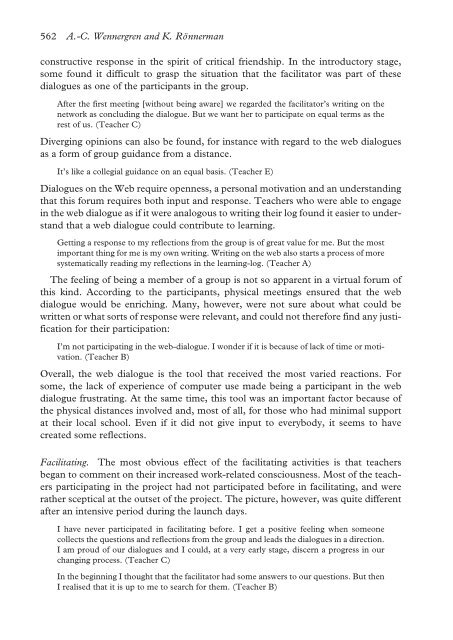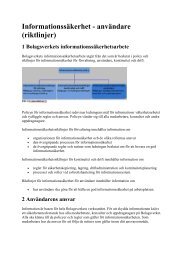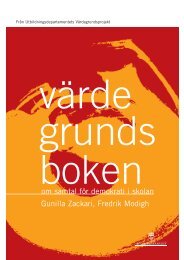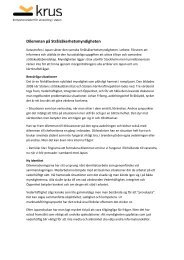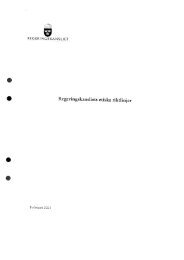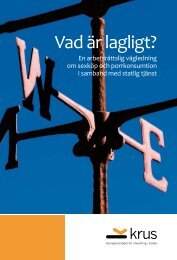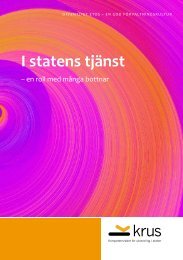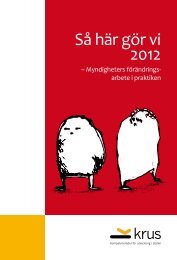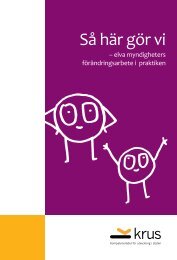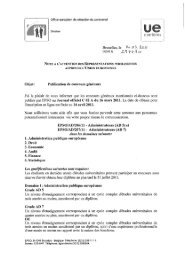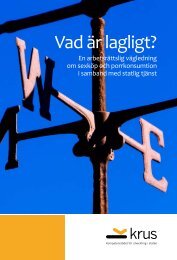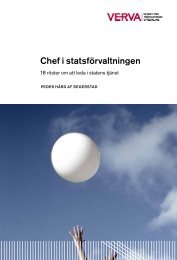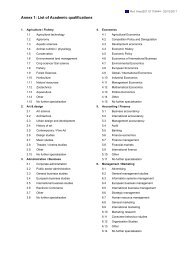Dialogkompetens i skolans vardag - Publikationer - LTU - Luleå ...
Dialogkompetens i skolans vardag - Publikationer - LTU - Luleå ...
Dialogkompetens i skolans vardag - Publikationer - LTU - Luleå ...
Create successful ePaper yourself
Turn your PDF publications into a flip-book with our unique Google optimized e-Paper software.
562 A.-C. Wennergren and K. Rönnerman<br />
constructive response in the spirit of critical friendship. In the introductory stage,<br />
some found it difficult to grasp the situation that the facilitator was part of these<br />
dialogues as one of the participants in the group.<br />
After the first meeting [without being aware] we regarded the facilitator’s writing on the<br />
network as concluding the dialogue. But we want her to participate on equal terms as the<br />
rest of us. (Teacher C)<br />
Diverging opinions can also be found, for instance with regard to the web dialogues<br />
as a form of group guidance from a distance.<br />
It’s like a collegial guidance on an equal basis. (Teacher E)<br />
Dialogues on the Web require openness, a personal motivation and an understanding<br />
that this forum requires both input and response. Teachers who were able to engage<br />
in the web dialogue as if it were analogous to writing their log found it easier to understand<br />
that a web dialogue could contribute to learning.<br />
Getting a response to my reflections from the group is of great value for me. But the most<br />
important thing for me is my own writing. Writing on the web also starts a process of more<br />
systematically reading my reflections in the learning-log. (Teacher A)<br />
The feeling of being a member of a group is not so apparent in a virtual forum of<br />
this kind. According to the participants, physical meetings ensured that the web<br />
dialogue would be enriching. Many, however, were not sure about what could be<br />
written or what sorts of response were relevant, and could not therefore find any justification<br />
for their participation:<br />
I’m not participating in the web-dialogue. I wonder if it is because of lack of time or motivation.<br />
(Teacher B)<br />
Overall, the web dialogue is the tool that received the most varied reactions. For<br />
some, the lack of experience of computer use made being a participant in the web<br />
dialogue frustrating. At the same time, this tool was an important factor because of<br />
the physical distances involved and, most of all, for those who had minimal support<br />
at their local school. Even if it did not give input to everybody, it seems to have<br />
created some reflections.<br />
Facilitating. The most obvious effect of the facilitating activities is that teachers<br />
began to comment on their increased work-related consciousness. Most of the teachers<br />
participating in the project had not participated before in facilitating, and were<br />
rather sceptical at the outset of the project. The picture, however, was quite different<br />
after an intensive period during the launch days.<br />
I have never participated in facilitating before. I get a positive feeling when someone<br />
collects the questions and reflections from the group and leads the dialogues in a direction.<br />
I am proud of our dialogues and I could, at a very early stage, discern a progress in our<br />
changing process. (Teacher C)<br />
In the beginning I thought that the facilitator had some answers to our questions. But then<br />
I realised that it is up to me to search for them. (Teacher B)


